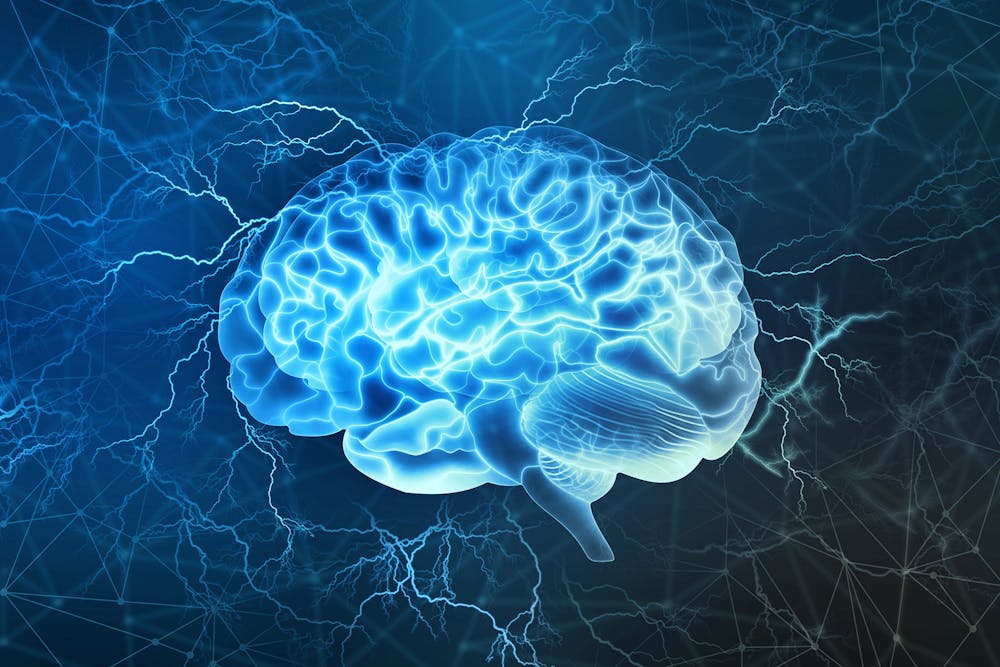Researchers in the IU Department of Psychological and Brain Sciences in the College of Arts and Sciences recently conducted a study that sheds new light on how an individual’s mind retrieves words and concepts from memory.
The study, published Oct. 12 in the Proceedings of the National Academy of Sciences, a respected scientific journal, highlights the connection between the foraging behaviors of humans and animals and the processes involved in memory retrieval. The study found cognitive processes may have rooted origins in the way both humans and animals search for food and resources in their physical environment.
Lead investigator Peter Todd, provost professor in the IU Department of Psychological and Brain Sciences and Cognitive Science Program, has conducted research focused on the roots of cognitive processes in his past. His findings sparked this project in which he continued to explore how patterns of searching for resources like food, water or shelter might also expound the way humans search for internal concepts stored in memory.
“We wanted to see whether people who are searching for things forage in their minds similarly to how animals are searching in space, and whether the same kinds of mechanisms that evolved for guiding animals to look in the external world could be guiding how humans are looking in their memories internally for information,” Todd said.
Understanding how the brain works in memory and decision-making is influenced by differences in cognitive search processes. Todd said the research also has potential implications for understanding schizophrenia and other forms of psychosis, characterized by disorganization in speech and thought, as well as potential relevance for conditions like obsessive-compulsive disorder and attention-deficit/hyperactivity disorder.
“In some cases, OCD leads to a tendency to cling to the current situation, lingering too long in a conversation or a particular foraging area,” Todd said. “Conversely, conditions like ADHD can prompt hasty departures, resulting in a shorter attention span in activities such as conversations, reading or searching for resources.”
During the study, participants engaged in word retrieval tasks while their brain activity was monitored using functional MRI. They were tasked with listing items from specific categories — such as animals, foods, occupations or cities — or words starting with specific letters for three minutes at a time.
These tasks, known as verbal fluency tests, revealed how people tend to group related words and then transition to new word groupings. For example, when asked to list various foods within a limited time frame, participants would begin with one category like fruits and then switch to another category, such as vegetables or grains, once they exhausted their fruit-related words.
The lead author of the study and a former doctoral student in the Psychology Department, Nancy Lundin, said the results of this research reveal new information regarding the posterior regions of the cerebellum, a part of the brain responsible for coordinating voluntary movements, maintaining balance and facilitating motor learning.
“A growing body of research is showing that the cerebellum is not just involved in motor coordination, but also potentially in the coordination of cognitive, language and emotion-based processes,” Lundin said. “In our study, we showed that cerebellar activity was related to switching to new parts of semantic space during memory search, which furthers our knowledge about the cerebellum’s contribution to cognitive and linguistic functions.”
Professor Josh Brown in the Department of Psychological and Brain Sciences, said he used functional magnetic resonance imaging previously to study decision-making processes and contributed his expertise to this research.
The study revealed specific brain regions, such as the hippocampus and the posterior cerebellum, showed greater activity during switching compared to clustering. The hippocampus is generally responsible for memory formation and retrieval, while the posterior cerebellum plays a role in coordinating movements and motor learning.
“When the hippocampus is impaired, it impairs the brain’s ability to retain information for extended periods,” Brown said. “Enhancing our understanding of the hippocampus's functioning may help us create treatments for clinical disorders arising from damage in that region in the future.”




